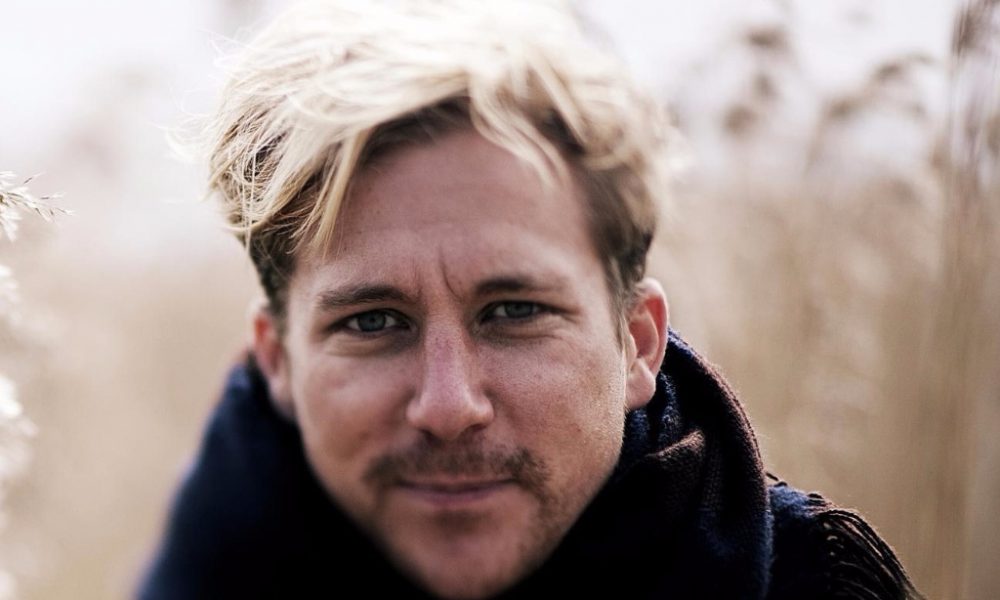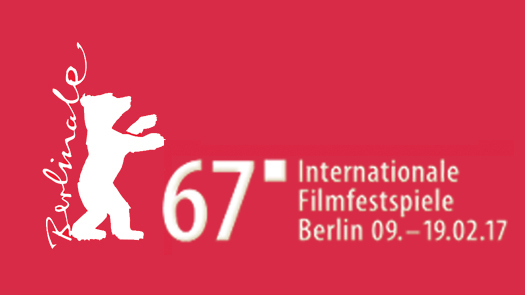At Elske Pia (Loving Pia): An interview with director Daniel Borgman

Loving Pia is Daniel Borgman’s beautifully shot film that tells the story of Pia, an intellectually disabled 60-year-old woman, who lives with her elderly mother in the Danish countryside. This cinematic gem shows Pia’s quest for love as a way to come to terms with her (and her mother’s) mortality. We sat down with the director to discuss Pia’s world according to Daniel Borgman.
I really enjoyed your lovely, beautifully shot film.
(Whispers) I shot it myself.
Do you usually shoot your films yourself?
No.
It was very impressive. I wouldn’t have known. How did you come up with the idea for Pia’s story? What was it like meeting her for the first time?
It was super cosy. I made another film, and we met a thousand kids during a massive street casting in New Zealand schools. They shared many stories about their lives, and my producer Katja and I starting thinking, “Why aren’t we making a film about their real stories?”. After that film, the feeling about these real people, who have the same story but better because it’s deeper, more nuanced, and more original, lingered with us. Katja and I agreed to grow a story from people. I’ve always had this idea to make a film about an adult-dependent relationship in the countryside. We did all this research to find adult living situations where one person was responsible for another. Then we drove around and met different people. On that journey we met Pia and her mother. It was summer and they lived in this cool Danish/French artist country vibe with a delightful vegetable garden. Even though I had been expecting to find something a bit more gnarly and dark, we found the opposite. They were interested in what we wanted to do, so we started spending time with them.
What made you decide to shoot using natural lighting and 16mm film?
Everything was a reaction to stuff that I had done before, which was overcooked, waiting around, so many people. Most of the film was shot with three people, sometimes six. I hadn’t shot with natural lighting before. One time we put a lamp up but then took it down. I wanted things to be real and fast. We didn’t have the resources to have people around. The films that I was really responding to felt like they were made that way too. It’s a combination of things. I think that if we were shooting not on film, we would have felt pressure to style things more. But there is something about shooting on film. I love that you can point it, with the light, at something ugly and it still feels okay. It’s got its own quality to it. I just really love film, so I wanted to do it. 16mm instead of 35 because it’s cheaper and the camera is smaller, so easier to handle. What’s really cool about shooting on film is that you are so concerned about how much you are shooting because every time that you roll the camera it costs you money. There is a focus. With a digital cinema camera, you just shoot everything, you shoot for 40 minutes and it doesn’t matter. With film, you really feel like you are capturing something: it changes how you work. You can’t shoot in super low light; if you do it’s very clear that you have done that. There is a kind of honesty and clarity. I like that you can hear it go “kuhhhhhllll.” You can feel the world being sucked into this machine.
Why did you choose that specific aspect ratio?
I got to do everything that I wanted with this film, all the geeky things I love. I’ve always wanted to do 4:3. Maybe it’s something to do with the films that I like, Pedro Costa, old anthropological French films from the 60s. Old news reporting and old documentaries probably influenced those choices. I was about to say that we probably won’t do it like that next time, but I think we probably will.
Don’t change something that’s working so well. The overuse of a score can be distracting. What made you decide against using a score?
I feel like I overused it in the past. It was an extreme reaction, no music, not even on the credits. I’m a bit of a Haneke fan, and he’s anti-music. I want to use music next time because it’s fun, so it’s good to have it out of my system.
What about the music playing in Pia’s last scene?
It’s in the track, in the recording. I recorded that when it was just me staying at their house. I put a mic on Pia and I was taking a break in her room. Suddenly I heard her words and thought, “Oh my god, what’s she saying?”. The music was playing so we couldn’t avoid it. I think it’s Shostakovich. It’s so nice.
The dialogue was so natural and believable. How much of that was scripted?
Nothing. (Laughs) Sometimes I would write a rough thing, mostly when working with Pia and her mum. Her mum would never do what I said. It was like creating a frame for the scene, suggesting sentences that would come up within the frame and the beats of the scene. Then I let them go and stop, talk about it, then give it another go.
How did that affect the rehearsal process?
We didn’t have rehearsals. We shot for two years. Rehearsals were just hanging out, talking and getting to know them. I think those are the best rehearsals. Even when I do more straightforward stuff, I don’t really do rehearsals because they seem weird to me, and I never really understood how to do them. I’d much rather go for a walk and talk about feelings or backstory.
How much footage did you collect over those two years?
I don’t know, maybe seven hours of footage. We were filming so long that the lab closed, so we had to go to a different one. Things changed.
How involved are you in the editing process?
Super involved. I would shoot and cut something. Then I would talk to different people, my script consultant and Katja, about the material. Shoot again and cut some more. The film started out 40 minutes, then 50, then 60. Every time we shot new stuff I’d put it into the edit and throw out other stuff. So, it wasn’t getting super long but at one point it was two hours and then we got it down. When we went into our official two-week production period Sophie, the editor, came on board and stayed true to the shape. She really did an amazing job of cleaning up my mess, making everything better, clearer.
One of the lines that Pia says in the last scene is: “Mum, I’m bad at reading, so I can’t get married”. Do you have any idea what that means?
I think it’s because she’s dyslexic. There is a scene where she reads earlier in the film. She reads a lot, she really likes reading, and she likes people seeing her reading, but I don’t know that she retains and comprehends the whole picture of what she’s reading. I feel like maybe, somehow, she sees that as a symbol of how she’s different, so that means she can’t have a normal…is that even the right word to use? She can’t have a regular heteronormative dream. But she kind of absorbs things and stores a little bit and absorbs something else and stores that. Sometimes she will put them together in slightly different ways, fragment them and recombine them, so that’s kind of a thing that goes on in her head as well. Maybe she’s got a couple of worries that she is talking to herself about at the same time, and they are not actually connected. You know? Pia is really cool because she is very interesting; you just can’t communicate with her with YOUR rules. We have these rules about how you talk to a person, and they don’t really work [when talking with Pia] but you still can communicate. It’s just that if you go there wanting to be satisfied in your able-world view way of understanding things, if you go there looking for that you’ll be disappointed. But if you just go to her open, then you’ll get something. I like that about her.
Did the themes of dreams and mortality spring from Pia and her mother, or did that come from you?
It sprung from Pia and her mother, but I’m really into dreams and mortality so I got lucky. Someone else who spent time with them might have focused on something completely different. That’s interesting to think about now that the film has been screened. Maybe they would have been really focused on the day centre, all the ins and outs there.
Did you have any concerns filming Pia’s nude scenes?
Well, I was worried that her mum was going to get mad at me, but she was super chill. I think it’s because she’s beautiful in those scenes; she’s taken seriously as a beautiful older woman. The main concern wasn’t the nudity but in the later scene where she is clearly having trouble getting the shower to work. It’s hard because we were behind the camera cracking up; it’s a funny situation, especially when it turns on and it’s cold. And she yells, “Ahhh, it’s cold!”. It did make me wonder, is it okay to be laughing right now? There is a nude woman who is super vulnerable working in a new place, having a problem. At that point, we just knew each other so well. Pia and my producer Katja were always laughing at me too. We’re all just people. I also felt like the hotel shower situation was a regular problem, it happens to me all the time. My producer and I gravitated towards that, treating Pia the same and being straight up about it, not being afraid. The worst bullshit, stupid movies are these feel-good movies with people with Down’s syndrome and it’s all nice. I think it’s so disgusting and creepy. We tried to be real with her. You can’t do that if you just went into her life for five minutes. We felt like we had been around long enough that we sort of earned that place.
Well, two years is a substantial amount of time. Can you tell me about your next project?
I was lucky that Katja, who is a legend, gave me a film camera and 20-to-15 rolls of film. So, we just started shooting some stuff about a mother and a child. A solo mother in hardship. It’s about spirituality, also a little about colonial indifference because she is a Samoan woman living in the west. We’ll see where that goes because it’s very early. And we have another script that I wrote about male farmers. It’s based loosely on a book. We are really excited about the project. It’s about love and relationships, all about rugged male farmers in the 1930s. Now the trick is how do we undo the script so we can work in this process way, which is free and open. It is almost like we are reverse-engineering the script out of the script, so we haven’t quite figured out how that works yet.
Those both sound amazing. I definitely plan to follow your work, so it’ll be interesting to see your future projects. Thank you so much for your time.
Yeah, it was cool to talk to you. Enjoy Berlin.
Lindsay Bellinger
Read our review of At Elske Pia (Loving Pia) here.
For further information about the 67th Berlin Film Festival visit here.
Read more reviews from the festival here.
Watch the trailer for At Elske Pia (Loving Pia) here:
























Facebook
Twitter
Instagram
YouTube
RSS